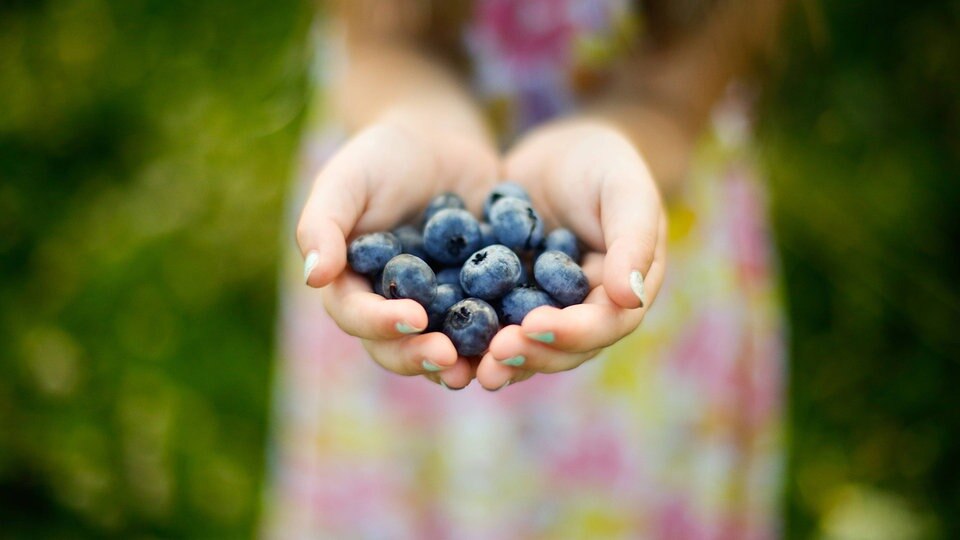Chia seeds, avocado, quinoa – if you want to eat healthy, it's hard to avoid these so-called superfoods. Thanks to their health-promoting ingredients, they're popular – but they face increasing competition from local 'classics', which often outweigh their merits!
SUPERIOR FOOD FROM HOME: Protects the environment and is good for your wallet
There are many foods in our region that are equally healthy, contain valuable nutrients and, above all, are more sustainable because long transportation routes do not have to be covered.
Sometimes, homemade foods trump modern superfoods when it comes to nutrients! Blackcurrants contain about ten times more vitamin C than modern goji berries, which must travel specially from China.
The fact that neighboring products are usually cheaper than their exotic counterparts is also a convincing argument.
Better than avocado, chia & co.? Our best alternatives:
Home advantage: Walnuts instead of avocado
Well, dear avocados – you're great when it comes to unsaturated fatty acids, but the nut has an even higher content: 100 grams contain 7.5 grams of particularly healthy alpha-linolenic acid – which is unbeatable!
Walnuts also contain a lot of vitamins and minerals: their high potassium content supports muscles and nerves. What else makes walnuts attractive: They can grow well in our latitudes and last longer than fast, long-travelling rotten avocados.
classic: Flax seeds instead of chia seeds
Chia seeds come primarily from South and Central America and are rich in omega-3 fatty acids, high-quality protein, fiber, and antioxidants.
This is no problem for “our” flaxseeds, because they are high in protein and boast an impressive proportion of alpha-linolenic acid: they have an anti-inflammatory effect, protect against cardiovascular diseases and cancer and improve fat and cholesterol metabolism!
If you buy ground flax seeds, they contain as much fiber as muesli or yoghurt and can improve digestion at least as much as exotic chia seeds.
Vitamin Power: Sea buckthorn, currants and raspberries instead of goji berries and acai berries
Small red goji berries are often referred to as miracle fruits because they contain many vitamins (especially vitamin C) as well as a lot of iron and trace elements.
But when it comes to vitamin C, it's 1:0 to local berries! Black currants and sea buckthorn can easily outperform goji berries, which are imported from China and usually only available dried: With about 450 to 1,000 milligrams of vitamin C per 100 grams of fruit, sea buckthorn easily outperforms almost all of its fruit counterparts.
Bonus: Sea buckthorn and currants are much lower in sugar than sweet goji berries. Super berries: In addition to their good vitamin C content, berries contain anthocyanins, which – depending on the variety – are far superior to goji berries: their content of a plant pigment that can fight inflammation is up to 20 times higher!
Trendy acai berries also pale in comparison to blueberries – not only in terms of anthocyanins, but also in terms of iron content.
Overall energy: millet and oats instead of quinoa
Gluten-free, high in protein and plenty of iron: it's no wonder quinoa from the Andean region of South America is often used as a grain substitute. Are there foods that have an equally healthy home-made advantage?
Does it exist: Millet contains valuable protein and a lot of iron – and it's also gluten-free! It also grows in Europe, including Germany.
Whole grain oats are also a great alternative and have many health benefits for the skin and gut!

“Total coffee aficionado. Travel buff. Music ninja. Bacon nerd. Beeraholic.”








More Stories
Coral Seeding: Artificial Insemination Makes Coral More Heat Tolerant
Fear, Anger, and Denial: How People Respond to Climate Change – Research
LKH Graz: Using radiation to combat heart arrhythmias